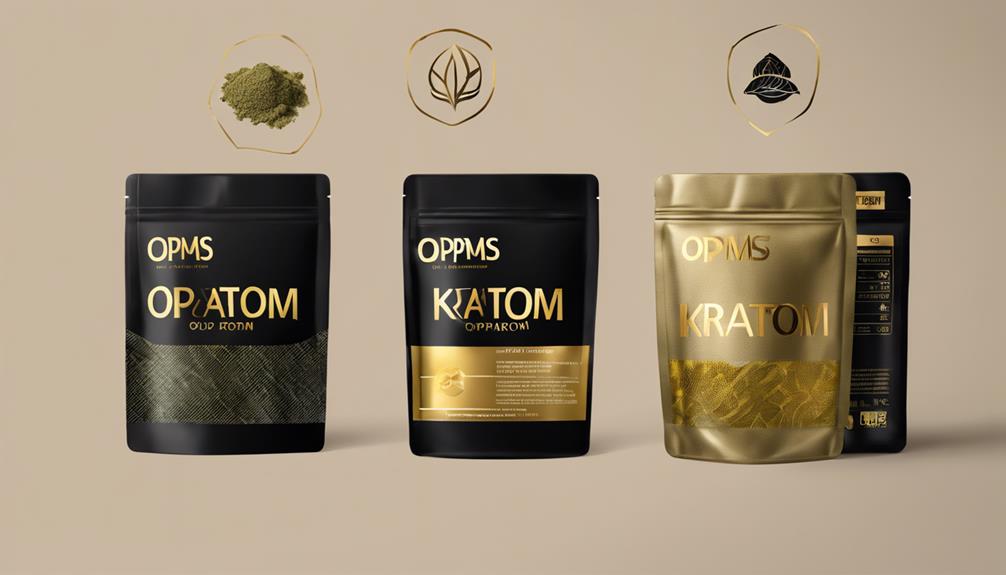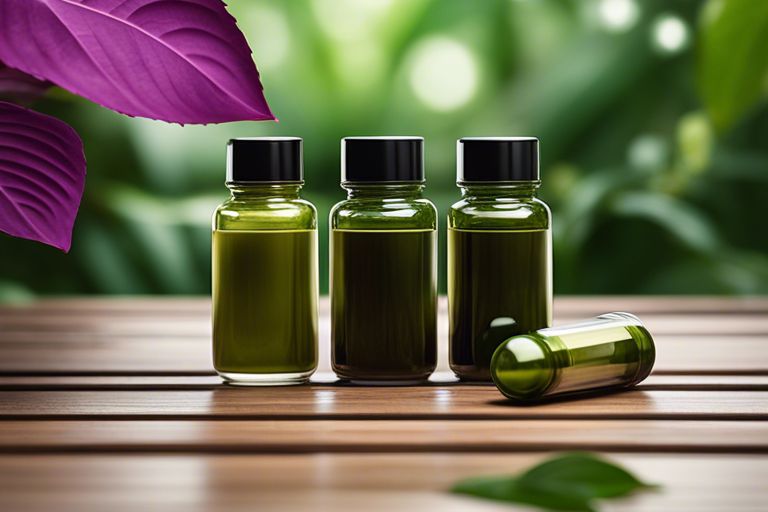Deprecated: mb_convert_encoding(): Handling HTML entities via mbstring is deprecated; use htmlspecialchars, htmlentities, or mb_encode_numericentity/mb_decode_numericentity instead in /home/users/kratomfiles/www/kratomfiles.com/wp-content/plugins/quick-adsense-reloaded/includes/template-functions.php on line 3552
When you take magnesium with kratom, you can enhance the experience by alleviating side effects like constipation and amplifying the plant's effects. Magnesium increases the bioavailability of kratom's alkaloids, leading to a more intense and longer-lasting sensation. You'll find it easier to manage kratom's stimulating and soothing effects when you're not worrying about digestive issues. By combining the two, you'll access a more balanced and effective experience. And, as you explore the benefits of magnesium and kratom, you'll discover the ideal dosage and timing to maximize their synergistic effects.
Key Takeaways
- Magnesium enhances the effects of kratom by increasing the bioavailability of its alkaloids, leading to a more intense and longer-lasting experience.
- Combining magnesium and kratom can alleviate constipation, a common side effect of kratom use, by regulating bowel function and promoting healthy digestion.
- Magnesium can help mitigate the negative effects of kratom withdrawal, such as anxiety, insomnia, and muscle cramps, by promoting relaxation and improving mood.
- Taking magnesium with kratom can reduce tolerance and boost its effects, allowing users to maintain a safe and effective dosage.
- Magnesium citrate is a recommended form of magnesium to take with kratom, as it is easily absorbed and can help alleviate constipation.
Understanding Magnesium and Kratom

When you're considering combining magnesium and kratom, you must understand the basics of each substance and how they interact. Magnesium is an essential mineral that plays a vital role in over 300 biochemical reactions within your body. It's found in every cell, with high concentrations in your bones, blood, and muscles. On the other hand, kratom, or Mitragyna speciosa, is a Southeast Asian tree with stimulating and soothing properties that affect brain receptors and induce temporary changes to your system.
As a kratom user, you might be interested in mixing kratom and magnesium to enhance your experience. Magnesium citrate, a common form of the mineral, can help alleviate constipation, a common side effect of kratom use. Additionally, magnesium deficiency can lead to muscle tension, which kratom can exacerbate. By addressing this deficiency, you may find that your kratom experience is more balanced. In addition, magnesium can help regulate blood sugar levels, which is important for overall health. Understanding how magnesium and kratom interact is key to using them safely and effectively.
Benefits of Magnesium for Kratom
By incorporating magnesium into your kratom routine, you can tap into a range of benefits that enhance your overall experience. When you take magnesium with kratom, you can expect a more intense and longer-lasting effect due to increased bioavailability of the alkaloids. This can also help reduce tolerance, allowing you to maintain a stronger and more consistent effect. Additionally, magnesium can alleviate kratom-induced constipation by regulating bowel function and promoting healthy digestion. The combination of Kratom and magnesium together can also help alleviate anxiety and stress by promoting relaxation, relaxing muscles, and improving mood. In addition, magnesium can mitigate the negative effects of kratom withdrawal, such as anxiety, insomnia, and muscle cramps, by regulating neurotransmitters and promoting a sense of calm. By using kratom with magnesium, you can experience improved sleep, reduced muscle tension, and enhanced biochemical reactions, ultimately leading to improved overall health benefits.
Combining Kratom and Magnesium Safely

You can guarantee a safe and effective experience when combining kratom and magnesium by being mindful of dosages and starting with low amounts. When you combine these two substances, you can expect a harmonious interaction, as magnesium citrate and kratom don't react in a meaningful way. In fact, magnesium can help alleviate kratom-induced constipation, a common side effect of kratom use. Some users report that magnesium enhances the effects of kratom, potentially reducing tolerance and boosting its effects, although this is based on anecdotal evidence. When taking magnesium with kratom, you may experience potentiated effects, making kratom stronger and longer-lasting. However, individual results may vary, so it's essential to monitor your dosage and start with low amounts to avoid adverse interactions. By being cautious and responsible, you can safeguard a safe and effective experience when combining kratom and magnesium.
Kratom and Magnesium Interactions
As you explore the combination of kratom and magnesium, it's natural to wonder how these two substances interact with each other. The good news is that magnesium citrate and kratom don't interact in a meaningful way, and you don't need to worry about any adverse reactions when consuming them simultaneously.
However, magnesium can have a positive impact on your kratom experience.
- Magnesium aids digestion and bowel movements, which can help alleviate kratom-induced constipation.
- Magnesium may enhance kratom effects and reduce tolerance, although this is based on anecdotal evidence.
- Some people use magnesium to reduce their tolerance to kratom, allowing them to stick to a safe and proper dosage.
- Magnesium may potentiate kratom, making its effects stronger and longer-lasting.
- Magnesium can help you maintain a healthy digestive system, which is essential when consuming kratom regularly.
Is There a Benefit to Taking Magnesium with Kratom?
When it comes to kratom and magnesium benefits, there may be a potential synergistic effect. Kratom users report that magnesium supplements can alleviate constipation, a common side effect of kratom use. Additionally, magnesium can help with muscle relaxation, which may complement the relaxation effects of kratom.
Enhancing Kratom Effects With Magnesium

Combining magnesium with kratom can substantially amplify the plant's effects, allowing you to experience a more intense and longer-lasting sensation. This is because magnesium increases the bioavailability of kratom's alkaloids, making them more effective. Specifically, magnesium citrate is thought to potentiate kratom's effects, possibly due to its ability to relax muscles and improve digestion, enhancing the absorption of kratom's active compounds.
| Benefits | How Magnesium Helps | Effects on Kratom Experience |
|---|---|---|
| Increased bioavailability | Enhances absorption of alkaloids | More intense effects |
| Reduced tolerance | Regulates body's response to kratom | Less risk of tolerance and withdrawal symptoms |
| Balanced effects | Reduces sedative effects, enhances stimulating effects | More energizing and uplifting experience |
| Ideal dosage | 200-300 mg of magnesium citrate or glycinate | Customizable to individual needs |
| Improved digestion | Relaxes muscles, improves digestion | Better absorption of kratom's active compounds |
Frequently Asked Questions
What Should You Not Take With Magnesium?
When taking magnesium, be cautious of certain medications that can interact negatively. You shouldn't take magnesium with antibiotics like Ciprofloxacin, blood thinners like Warfarin, or diuretics, as it can lead to medication risks and mineral imbalances. Additionally, avoid taking magnesium with heart medications, proton pump inhibitors, or certain herbal supplements, as it can cause health hazards. Be mindful of these interactions to guarantee safe supplementation and avoid potential vitamin conflicts, food interactions, and herbal dangers.
What Cancels Out Magnesium?
As you navigate the complex world of supplements, you're wise to ask what cancels out magnesium. Imagine your body as a delicate ecosystem, where even the slightest imbalance can have far-reaching consequences. Antacid interactions, Vitamin conflicts, and Mineral imbalances can all hinder magnesium's absorption. Additionally, Food inhibitors, Medication interference, Hormone disruptions, and Gut bacteria imbalances can also negate its effects.
Does Magnesium Detox Your Body?
You're wondering if magnesium can detox your body. The answer is yes! Magnesium benefits your body by supporting the natural detox process. It helps remove heavy metals, reducing inflammation and promoting cellular health. When you have a mineral deficiency, your liver and kidney function can suffer. Magnesium steps in to cleanse your body, promoting a healthy gut bacteria balance. By incorporating magnesium into your routine, you'll be supporting your overall well-being and giving your body the cleanse it needs.
Do Stimulants Deplete Magnesium?
You know how energy crashes can be a real bummer after relying on stimulants like caffeine, nicotine, or amphetamines for an energy boost? Well, it's because they can deplete your magnesium levels. When you consume these stimulant types daily, your magnesium levels take a hit, leading to nutrient deficiencies and chronic stress. This can even cause adrenal fatigue. Consider adding magnesium to your supplement routine, especially in your morning routine, to help counteract the negative effects and keep your energy up naturally.










